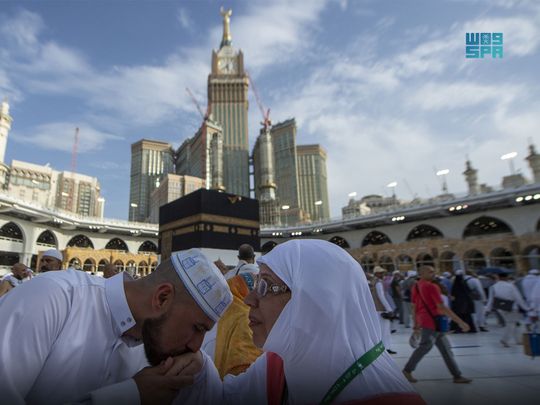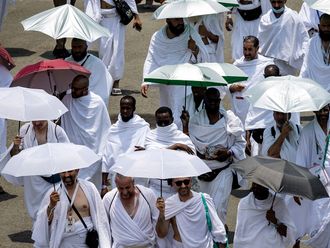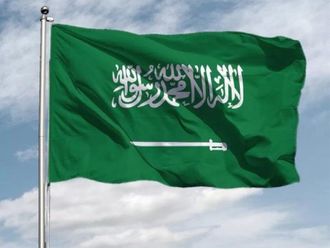
Dubai: The Ministry of Hajj and Umrah of Saudi Arabia has outlined specific conditions for local pilgrims wishing to participate, emphasizing the need for compliance with precautionary measures against the COVID-19 pandemic.
The guidelines are part of the kingdom’s efforts to organise the pilgrimage in a manner that prioritizes the well-being of all pilgrims.
According to the ministry’s statement, eligible applicants must be either citizens or residents of Saudi Arabia, possessing a valid national ID or residence permit by the month of Dhu Al Hijjah.
The age requirement is set at a minimum of 15 years (Hijri date), with the condition that the applicant is capable of performing Hajj either independently or with the assistance of an escort.
Also read
- Cost of Hajj package, transportation fees cut as Saudi Arabia opens Hajj registration for domestic pilgrims
- Saudi Arabia: Grand Mosque enforces ban on large bags, certain food items
- Watch video: Saudi Arabia plans first edition of Umrah forum in April in Medina
- Saudi Arabia: Pilgrims urged to avoid crowding as Umrah peaks
A notable stipulation is that the opportunity to perform Hajj under these conditions is reserved for those who have not previously undertaken the pilgrimage, as recorded in the Hajj and Umrah system. An exception to this rule is provided for women wanting to perform Hajj with a mahram, a family member with whom marriage would be considered permanently unlawful (haram).
Health and safety protocols require that all applicants must have received vaccinations against meningitis and seasonal flu, evidenced by a health certificate.
Additionally, individuals must be free from any acute chronic or infectious diseases, with a medical certificate to prove their health status.
Female pilgrims
The criteria extend to the mahram accompanying female pilgrims, who must also be a citizen or resident, meet the same health and vaccination requirements, and be either a first-degree relative to an Saudi woman or belong to specific categories of resident women as per the residence register.
Further accommodations are made for women performing Hajj, allowing for certain exceptions regarding their mahram’s participation. Specifically, a mahram can accompany a Saudi woman on her Hajj journey once every five years, provided he is a first-degree relative. This leniency also applies to resident women wishing to perform Hajj with their mahram, facilitating their participation in this pivotal religious obligation within the specified intervals, as dictated by the ministry’s guidelines.
Packages
A day earlier, the Ministry of Hajj and Umrah said it is starting the registration process for local pilgrims, announcing pricing details for four packages tailored to domestic pilgrims for the 2024 Hajj season. These packages range from SR4,099 to SR13,265.
Saudi citizens and residents in the kingdom keen on undertaking the pilgrimage can apply via the Nusuk application or the ministry’s website at http://Localhaj.haj.gov.sa.
The ministry outlined the specifics of each package available to domestic pilgrims. The first package, priced at SR10,366.10, offers accommodations in premium camps designed to ensure a high level of comfort. The second package, priced at SR8,092.55, provides hospitality camp lodging in Mina.
Pilgrims opting for the third package, priced at SR13,265.25, will be housed in one of the six towers in Mina, conveniently situated near the Jamarat Bridge. Domestic pilgrims seeking economical options can choose the fourth package, priced at SR4,099.75. All prices are inclusive of value-added tax (VAT) but exclude transportation costs to and from Makkah by land or air.
The ministry clarified that transportation costs to and from Mecca will be added to the first and second packages. Additionally, transportation within the Holy Sites of Mina, Arafat, and Muzdalifah via the Mashair train or buses will be added based on the camp’s location, along with transportation to and from assembly points.
For the third package, transportation between the Holy Sites will be exclusively via the Mashair train. As for the fourth package, transportation costs will include travel from the pilgrims’ residences in Mecca to the site of Mina for the stoning ritual at the Jamarat, utilizing buses and the Mashair train during the days of Tashreeq (Dhul Hijjah 11, 12, and 13).






